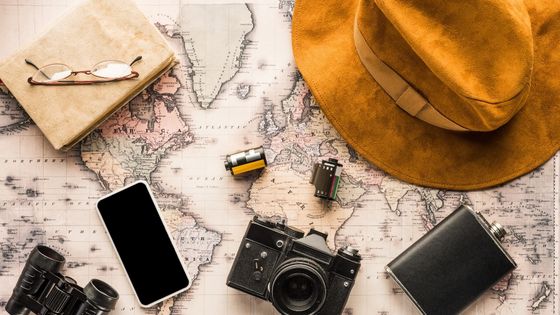The Covid-19 Pandemic has upended our lives in more ways than one. India as a nation had instituted strict lockdowns both at national and state levels from time to time. Subsequently, travel especially international travel was almost prohibited for a certain period during the Pandemic.
However, the travel and tourism industry which bore a significant brunt of the Pandemic is now slowly inching back to normalcy. People across the globe have now resumed international travel, albeit with caution. However, global travellers are in a quandary pertaining to COVID-19 restrictions which vary amongst different countries.


This blog specifically focuses on giving succinct information related to post-covid travel to India.
So, without further ado, let’s look into the Covid-19 travel advisory and precautions to take while planning a sojourn to India.
The Government of India has adopted a risk-based approach while formulating guidelines and amending protocols for international travellers. Below are some guidelines and protocols to be followed by travellers as they arrive at airports and subsequently travel to different states in India.
Covid-19 travel update for international travellers issued by Delhi airport
Since airports are the gateways to various Indian destinations, especially for international travellers, we have curated a list of travel guidelines issued by the Delhi airport.
- Travellers intending to visit India will have to submit a self-declaration form on the Air Suvidha website.
- Passengers need to quote the date of vaccination or the date when the RT-PCR test was conducted which should be within 72 hours prior to embarking on a journey to India. Alternatively, passengers can carry a certificate of having completed the full vaccine schedule which would be verified by the airport officials.
- Travellers are expected to self-monitor their health for the next 14 days upon arrival in India.
Furthermore, it should be noted that 2% of the travellers from each flight will be randomly tested upon arrival. If any passengers are found to be Covid positive or symptomatic, they will be managed as per the prescribed guidelines. They might be sent to a Government instituted quarantine facility or referred to a hospital.
Covid-19 safety guidelines for domestic travel in India
After two years of reeling from the Pandemic which wreaked havoc on the economy as well as the health of many people in India, people are now trying to resume their pre-pandemic lives. Travel has now resumed and almost all states in India are now opening up to welcome domestic as well as international tourists.
India is a vast country comprising 28 states and 8 union territories. Hence we will be enlisting post-COVID -19 travel guidelines of states that receive the maximum influx of foreign tourists, especially the states of Goa and Kerala and Rajasthan.
COVID-19 travel guidelines for Goa
Goa, a coastal destination is a popular getaway, especially for international travellers. Goa, besides Rishikesh and Kerala, is home to some of the best yoga schools in India. Most foreigners visiting Goa also look forward to yoga teacher training in Goa. Now, as global travel has resumed, many of these yoga aficionados are now flocking to Goa to learn some finer nuances of yoga. However, these and other leisure travellers need to follow rules and regulations of Goa for their own safety and the safety of others.
- Tourists have to install the Aarogya Setu app on their smartphones.
- Travellers are required to carry original ID proof.
- A negative test certificate or COVID-19 testing is no longer required to enter the Indian state of Goa.
- Tourists have to wear masks in public areas and follow social distancing protocols.
- Temperature check facilities are available at restaurants, hotels, bars and other tourist places.
- Stay at hotels by maintaining the highest standards in safety and hygiene.
Protocols for water sports and river cruises
Since Goa is a beach state, it but natural that tourists will be indulging in some form of water sports and enjoying the river cruises. So, we have enlisted some guidelines for the safe enjoyment of such sporting and leisure activities in Goa.
- Tourists have to do online booking of water sports
- The venture operator from his end needs to operate using different options of advance ticketing, smaller groups and timed entries for safety purposes.
- Bookings shall be accepted by the operator only from those tourists who have no history of COVID-19 infection in the past 28 days.
- Tourists are expected to maintain a safe physical distance of 2 meters from each other.
- If a tourist’s body temperature is found to be more than 99 degrees Fahrenheit with fever-like symptoms, then that person shall not be allowed for water activity.
- Hand sanitization provisions should be made available at all available work areas and entry points.
- The bookings should be such that the boat occupancy will not exceed 50% of its total capacity.
- The seating arrangements should be made keeping in mind the social distancing norms.
- Only packaged food is permitted and people should order food and drinks using apps and OR codes as much as possible.
COVID-19 travel guidelines for Kerala
Kerala is another state where foreign tourists flock especially to learn yoga in India. The coastal state of Kerala is another watering hole for yoga TTC in India. However, this coastal state faced the most brunt of the COVID-19 Pandemic and had been reporting a consistently high load of cases for months on end.
Below are some standard operating procedures and travel advisories issued by the state for the safety of tourists and locals alike:
- Tourists have to install the Aarogya Setu app and get an entry pass by registering themselves on the Jagratha portal.
- Wearing a mask in public places is a must
- Tourists should not unnecessarily extend their stay in Kerala without obtaining prior permission from the concerned Government authorities.
- Travellers should carry a COVID-19 negative test certificate and upload the same on the Government web portal while registering them.
- RT-PCR test, CBNAAT or TRUNAT to be taken within 96 hours upon arrival at the state borders.
- All travellers intending to visit other places after entering Kerala will be mandated to carry an entry pass for Kerala and the Union Territory or state they want to visit.
- Tourists will have to undergo thermal screening at all airports and public places in Kerala and COVID-19 tests will be conducted for symptomatic persons.
COVID-19 travel guidelines for Rajasthan
Rajasthan is known for its many forts and monuments that signify architectural splendour. So, it’s no wonder that this historic state is popular amongst both domestic and international travellers. Below are some COVID-19-related guidelines and advisory issued by the Rajasthan Government tourism department:
- All international travellers are required to do 7 days of institutional quarantine and 7 days of home quarantine.
- All tourists entering Rajasthan have to install the Aarogya Setu app on their smartphones.
- A self-health declaration form needs to be submitted upon arrival in Rajasthan.
- Symptomatic domestic travellers will be taken for quarantine to a medical facility.
- All tourists should have a negative COVID test report done within 72 hours prior to arrival.
- A mandatory quarantine of 15 days is required if tourists fail to produce a negative RT-PCR report.
COVID-19 travel safety tips
Although the guidelines and protocols might differ from state to state, there are some universal travel safety tips that you should adhere to while travelling to any place in India. Some of these tips are as mentioned below:
- Keep wearing masks at all public places and always keep a few extra masks handy.
- Similarly, carry good amounts of portable hand sanitisers, wipes and even face shields while travelling.
- Follow social distancing at all times and avoid visiting crowded places
- Avoid taking public transport and travel by private cabs or hired taxis wherever possible.
- Immediately isolate yourself if you display any of the symptoms related to COVID-19.
Your takeaway!
Although travel has resumed and is slowly inching back to pre-Pandemic levels, the general sentiment around travel is still on a cautionary note. Besides, with the virus mutating, travel protocols and advisories are getting updated periodically. Although this blog will surely help in enlightening you on post-Covid travel to India, we suggest that you get in touch with a reputable travel agency or authority to be fully prepared for any eventuality while travelling to India during these post Pandemic times.
















